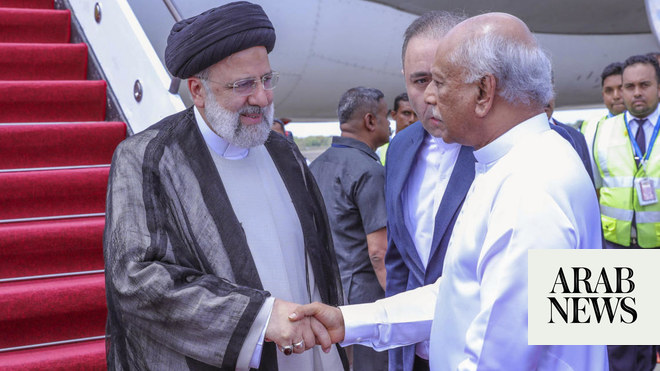
COLOMBO: A delegation from the International Monetary Fund on Monday arrived in Sri Lanka for talks on a bailout program, as the government closed schools and halted all non-essential services in a bid to conserve its fast-depleting fuel reserves.
Sri Lanka is struggling with its worst economic crisis since independence in 1948, following decades of economic mismanagement and more recent policy errors, as well as a hit from the coronavirus pandemic on the country’s tourism and remittances that have shriveled its foreign reserves to record lows.
As the island nation of 22 million people struggled to pay for imports and defaulted on a multimillion-dollar foreign debt payment last month, Sri Lankans have had to endure lengthy blackouts and extreme shortages of basic necessities, including fuel and medicines.
The IMF team’s visit comes as the South Asian country seeks a bailout from the global lender, following a virtual mission that concluded in late May.
“The IMF 10-member team will be here for a period of 10 days, and the first round of talks, which lasted for two hours, was encouraging,” Shanuka Karunaratne, media director at the office of the Sri Lankan Prime Minister, told Arab News.
The team — expected to conclude its visit on June 30 — would “continue discussions on an economic program that could be supported by an IMF lending arrangement,” the financial organization said in a statement.
“We reaffirm our commitment to support Sri Lanka at this difficult time, in line with the IMF’s policies.”
Sri Lanka closed schools in the capital and other major cities on Monday, as non-essential public-sector employees also began working from home for at least two weeks, in a bid to reduce commuting to help the country cope with the chronic fuel shortage.
Long lines stretching several kilometers have formed at many gas stations throughout the country, as some people waited for hours and even days to fill up their tanks.
Shiran Fernando, chief economist at the Ceylon Chamber of Commerce, said Colombo hoped that the visit from the IMF delegation would lead to a staff-level agreement.
“These discussions are to arrive at a staff-level agreement which does not result in disbursement of funds,” he told Arab News.
He pointed out that Sri Lanka would still need to find other means to finance its imports, whether from the market or credit from other countries or institutions, adding that the government must be committed to reform key areas, such as fiscal, monetary, and state-owned enterprises.
Murtaza Jafferjee, economist and chairman at Colombo-based think tank Advocata Institute, said Sri Lanka would have to adjust its macroeconomic policies if the talks with the IMF were to be fruitful.
“We need to have a credible macroeconomic adjustment program that the IMF can sign off on — this will permit us to get new money to flow from multilateral and commercial lenders,” Jafferjee told Arab News.
“The government has to act in the best interest of all the people in the country, not be servitude to cronies and sycophants.”
Sri Lankans have staged protests across the country for months, while demanding the resignation of President Gotabaya Rajapaksa, accusing him of corruption and economic mismanagement. As the financial crisis spiraled into a political one in recent months, there appears to be little trust in the government.
“The government is not a popular nor a stable government,” Mujibur Rahman, a member of Parliament for Colombo district, told Arab News.
“The IMF won’t just give the money, they will see the political and economic stability of the government,” he said.












